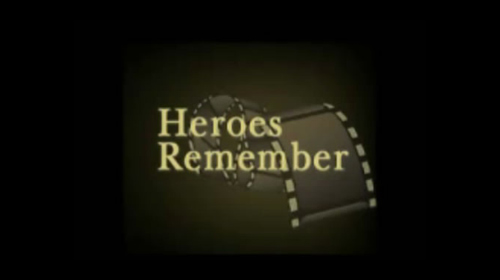We stored our bread
First World War Audio Archive
We stored our bread
Transcript
Hill 62 Memorial Belgium.
and that’s a long... miles and miles... hundreds of... I don’t know how far it is. And the cans, they were in fiveCourtrai Memorial Belgium.
gallon cans, like you see, you know. The cans, whatever they put in, whatever come out of them, I don’t know. Pure poison.Le Quesnel Memorial Belgium.
They were only glad to get it. But, that’s where we got our water from. Now food, we get the rations of food. There was bread.Gueudecourt Memorial France.
Sometimes we’d get a potato. And more times, we had to do withoutDury Memorial France.
anything. But if the ships didn’t, the boats didn’t get ashore, we wouldn’t get any. The bread, we don’t know where it was baked,Monchy Memorial France.
but there was bugs in it. If you were unlucky enough to get one of them . . . they wasn’t all like that, but some of them was,Passchendaele Memorial Belgium.
and we had to eat it because there was no more bread to get. And we had to save some of the bread. If we got it in the morningMasnières memorial France.
and we didn’t get nothing for our dinner, we had to have some leftover. We had to put it in our helmets. Why? Well, the ratsBourion Wood Memorial France.
would have it. There was great big rats there. Great big fellows.Courcelette Memorial France.
And when we get the bread, there was plenty of jam and you cutBeaumont-Hamel Memorial France.
open a tin, cut around a tin and you had a piece of bread and you want to put some jam on it. You would spread the jam on it,St. Julien Memorial Belgium.
and before you get it finished it would be black with sandflies, little black sandflies. They used to bite like about anything. One mouthful and it would be thrown away. The only breadCanadian National Vimy Memorial France.
we threw away was what the rats got at and eat it. And we couldn’t eat that, because they had it.Description
Mr. Dunn describes some obstacles to good nutrition at Gallipoli.
Ronald Dunn
Ronald Dunn was born in Bonavista, Newfoundland on May 31, 1897. He was a fisherman at the time of his enlistment, December 22, 1914, when he joined the Royal Newfoundland Regiment as a gunner. Mr. Dunn served in England, Egypt, and finally saw action in Gallipoli. He fell ill with dysentery and was sent back to England to convalesce. He was then deployed to France where he participated in the battles at Beaumont-Hamel and the Somme. He sustained two bullet wounds to his right thigh on July 1, 1916, and was given a medical discharge on October 22, 1917. After returning home, he married Elizabeth House, and had three children. Mr. Dunn was the president of the Bonavista Branch of the Great War Veterans’ Association whose membership he helped build to 150 strong. Mr. Dunn died in Golden Heights Manor, Bonavista, on September 8, 1994.
Meta Data
- Medium:
- Video
- Owner:
- Veterans Affairs Canada
- Duration:
- 2:17
- Person Interviewed:
- Ronald Dunn
- War, Conflict or Mission:
- First World War
- Location/Theatre:
- Gallipoli (Turkey)
- Battle/Campaign:
- Gallipoli
- Branch:
- Army
- Units/Ship:
- Royal Newfoundland Regiment
- Rank:
- Gunner
- Occupation:
- Infantryman
Attestation
Related Videos
- Date modified:



